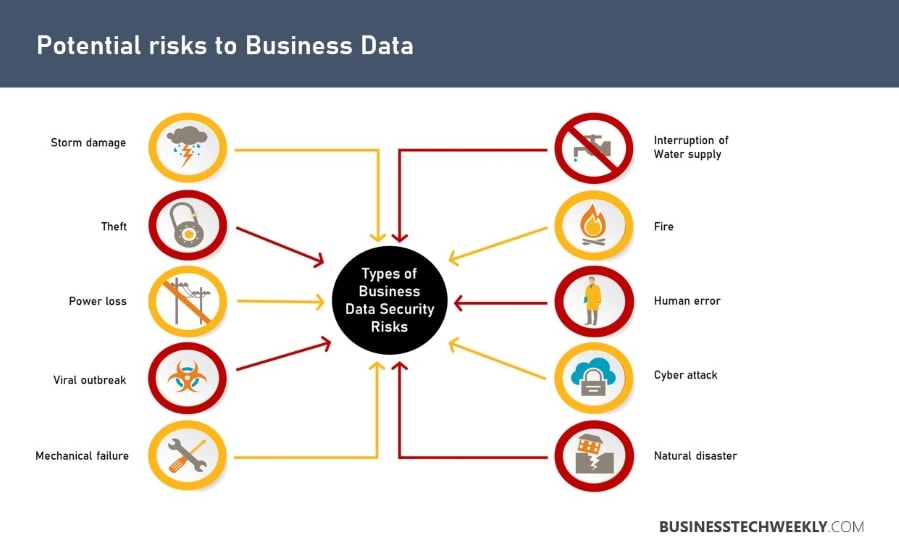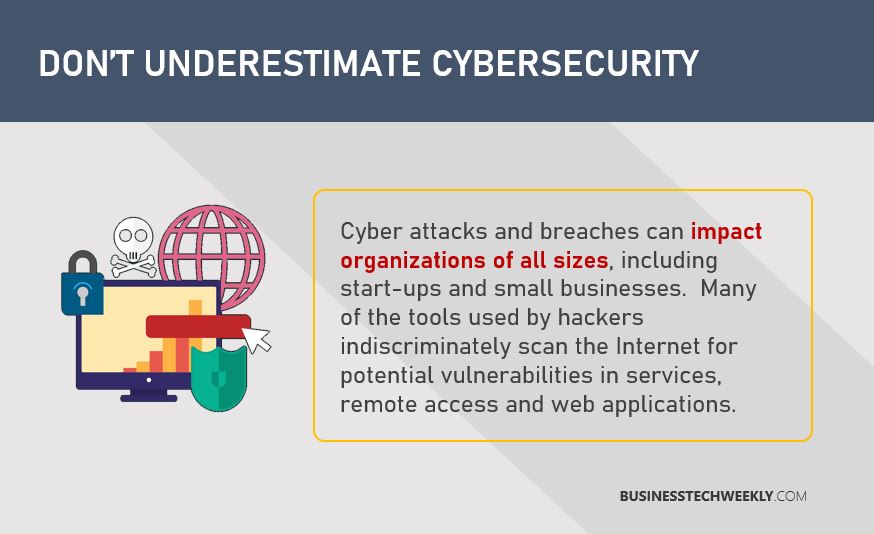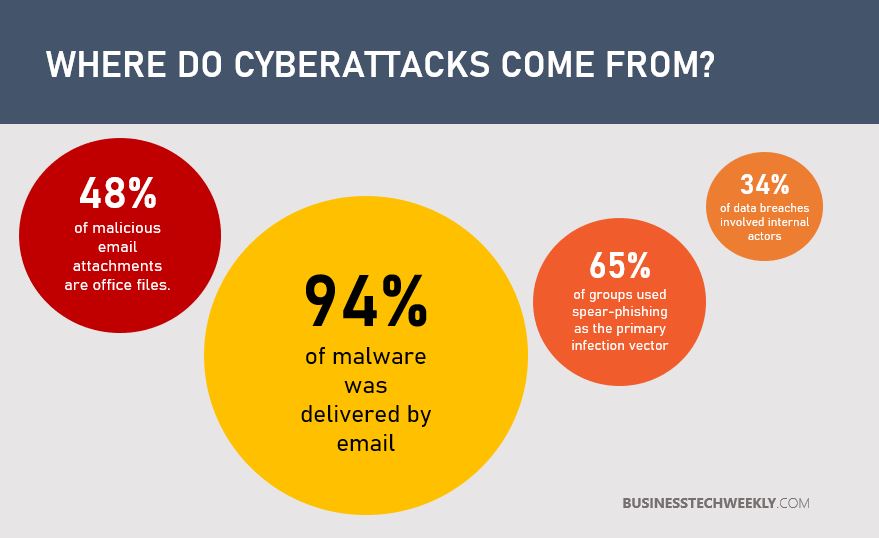How to Protect your Business Data in 10 Simple Steps

Data protection has become critical for businesses in recent years. Whether you are a startup or a large enterprise, knowing how to protect your business data is crucial.
Data issues can range from disrupting to downright devastating. Data theft and loss can interrupt day-to-day operations, sometimes creating situations where recovery is not just tricky but even impossible.
The growth of regulations surrounding data protection has further added urgency for organizations to employ strict information security measures. Threats to business data are easily avoidable with the correct practices in place.
Types of Business Data Security Risks
Data loss or theft can occur in businesses in several ways. Every year, thousands of security incidents are reported to agencies, with the most common being computer hardware theft, email/phishing scams, and unauthorized use of the network.
Cybercriminals cause a large majority of data security breaches. They use phishing scams and malware to collect sensitive information from businesses for monetary benefits.
While occasional data loss occurs from natural disasters and accidents, the damage from cyber-attacks is getting bigger with time. Big companies have been known to pay millions to experts after dealing with data breaches.

10 Steps to Protect Critical Business Data
Investing in the proper methods is essential for effective business continuity. With a few essential steps, businesses can increase the cybersecurity around operations and keep the data protected.
1. Create a solid security strategy
Every business, both large and small, should have a robust cybersecurity strategy. It should be detailed enough to describe how to protect data and the measures to take when something goes wrong. Such a strategy would help shift the mindset to proactive, allowing you to prevent any threats from affecting the business.
A response strategy makes sure you are ready before any incident occurs, rather than rushing to make instantaneous reactions, making things worse. Keep the strategy updated and handy. There is no use putting effort into creating something that only rests in the drawer.
2. Implement basic cybersecurity measures
There are several cybersecurity programs capable of protecting businesses against different types of data security threats. These measures are beneficial for startups with little experience in the area. Ward off any data threat by securing the network and computers against malware. Here are some tips for cybersecurity that help protect from most threats.
- Protect PCs against viruses, hackers, identity thefts, spyware, and other malicious content with security software
- Apply firewall on your router to provide the first line of defense against threats
- Employ antispam software to stay protected against emails that can be risky and distracting for employees
- Protect sensitive information through appropriate security policies and practices
- Ask employees to use strong passwords and change them regularly
- Control access to computers and network components
- Create backups of critical business data
- Use best practices on payment cards
- Educate employees on cybersecurity and threats and teach them how they can be accountable
- Create an action plan for mobile devices
- Keep all the pages of your website secure and protected
Cybersecurity is not a standalone strategy. It is a way to run the business, protect your data from different types of threats and risks, and involve all the employees in the process.

3. Educate the employees
The most significant vulnerability in data protection is often the human factor. Employees generally account for up to 55% of data breaches, according to a survey report.
See also: 10 Steps to prevent data misuse and theft
Large enterprises always make sure their employees are educated on cybersecurity policies and compliance regulations, with training and guidelines for dealing closely with business data.
It is essential to conduct regular training sessions to help the employees develop skills and knowledge to satisfactorily protect business data. Training topics range from passwords to phishing emails and scams. Focus on improving existing skills and expertise to improve how everyone in the organization handles security gradually.
Also read: Ten tips to improve Cyber Security Awareness amongst your employees
4. Establish a security culture
Any effort made in the direction of data security is only effective if there is a culture shift in the organization. Even if you understand the importance of cybersecurity, it matters little if those that handle data don’t realize it. Your frontline employees are often the most vulnerable links in your data security measure.
Building a better security culture in the company involves introducing security policies while rewarding the top performers to incorporate the importance of protecting business data. Make information security engaging and enjoyable to spread the culture across the verticals in the business.
5. Back up the data regularly
Though employees form the backbone of an adequate strategy for the protection of business data, you should go ahead and make sure your business data stays protected in any unexpected event.
However, about 62 percent still fail to back up their data regularly despite all the dangers known to businesses. This is particularly frustrating looking at the ease of solutions available today.
Data backups can be easily automated using advanced platforms, making sure the business is always safe. When sensitive information is stored in a cloud platform or backed up in the cloud, the company improves its chances of making it through any big disaster in the future.
6. Focus on BYOD policies
With an increasing focus on digitalization, more and more companies are adopting Bring Your Own Device, or BYOD, policies to reduce costs and improve productivity. If you are not careful about protecting your business data, these practices can pose security threats. Accessing critical information from personal devices means the business data is traveling out from the premises, attracting the risk of data breaches.
Big companies impose restrictions on what type of data can be used outside the company. Moreover, some policies can be used to protect the data on personal devices. Small and mid-sized organizations have also started following in their footsteps and adopt security measures to protect data from internal and external threats.
7. Build a response mechanism
Despite all the preventative measures, there is always a chance that something could go wrong. Even the most well-planned data protection strategy is vulnerable to some holes you might not have considered. A proactive approach can help you stay prepared for the worst-case scenario, in case it should happen.
Related: Responding to a Ransomware Attack: The crucial initial steps businesses must take
Only about 16 per cent of businesses have a response plan in place for any compromise to their data. However, the way you respond to incidents can make a difference between a minor loss and an expensive breach.
Here are some steps that could help you have an active response to data issues.
- Close any holes. Immediately turn off or disconnect any compromised systems and avoid using outdated programs.
- Notify the right parties. Based on what data is stolen, you may have to inform law enforcement or customers about it.
- Either hire a third-party agency or hold a meeting to find out what exactly went wrong.
When your proactive measures fail, respond with agility. Find out whether you should recover the data, shut your network or take some other steps. If you have outsourced the data security to partners, make sure they are available to help instantly.

8. Use the cloud
If your organization does not possess the required resources or expertise to address the security updates that need attention, you can consider a cloud service provider for your business data security.
A good cloud provider can store data, implement security, and update software patches to ensure integrity and protection of critical business data and information.
However, though many agree that the security measures employed by cloud service providers far exceed those that any company would apply to its on-site servers, the security issue of data migrating to the cloud is a topic of debate. It is the feeling of losing the business’s most sensitive data that makes the owners nervous and insecure.
Also read: Cloud Computing Security: Ensuring data protection and privacy in the cloud
Big companies use some policies and methods to ensure data protection in the cloud. The most common of these are specialized tools and limiting the types of data stored on the platform. Some even use encryption for sensitive data before transferring it to the cloud.
However, this type of storage is a good choice for small businesses looking for some data protection at affordable costs.
9. Set internal controls
No matter how blindly you trust your employees, it is always a good idea to limit the risk of employee fraud with internal controls. A failure to take appropriate measures can be dangerous, as employees can steal customer data or misuse company resources.
Employees should be given access to only the information they need to do their job. Also, make sure the system logs what information employees access. Assign roles to prevent any single employee from having too much responsibility. For example, if an employee takes care of purchase and expense reports, consider dividing the tasks between two employees.
10. Dispose of data properly
A critical factor in protecting business data and preventing security breaches is having suitable measures for the disposal of data that is no longer needed. Ensure old devices have their contents entirely removed before reusing to avoid sensitive data falling into the wrong hands.
It is important to remember that formatting drives and operating systems and deleting files and folders don’t mean the data is removed. Some tools still make your data accessible. If you have an IT partner, ask them to use methods to overwrite data multiple times to ensure it is unrecoverable.
The cost of data security breaches can be huge enough to bring down any small business. Although it is not entirely possible to eliminate the risk of fraud, suitable data protection measures can minimize the chances and damage if something unexpected happens.

